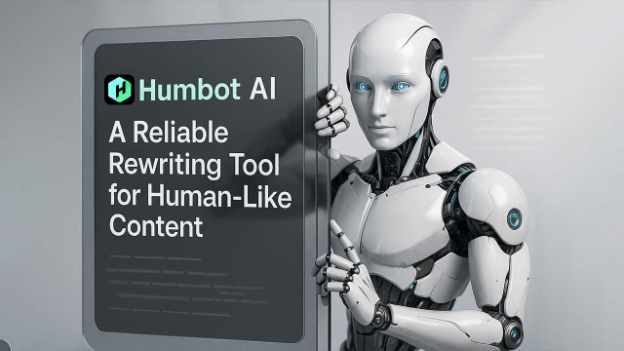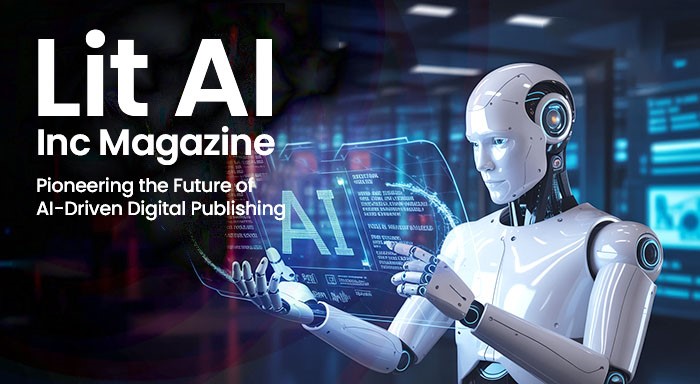The artificial intelligence landscape is witnessing a new force—Microsoft AI. It has transformed business workplaces, offering smart solutions for diverse needs. Organizations can enhance their productivity, streamline their operations, and scale efficiently with Microsoft’s comprehensive AI ecosystem. This guide explores the different aspects of Microsoft AI and its impact across different industries.
What is Microsoft AI
Microsoft AI refers to the comprehensive suite of AI technologies that includes tools, services, and platforms developed by Microsoft. The ecosystem encompasses machine learning layouts, cognitive services, AI assistants, and integrated AI capabilities. These solutions help organizations leverage the power of AI effectively.
Key Components:
- Azure AI services: Cloud-based machine learning platform that offers cognitive computing services.
- Microsoft Copilot: An AI-powered virtual assistant that is integrated across Office applications to improve productivity.
- Azure OpenAI Service: Collaboration with OpenAI that provides access to advanced LLM models.
- AI Builder: AI development platform for business applications.
- Cognitive Services: Vision, speech, and language processing through pre-built AI models.
Microsoft AI: Platforms and Core Technologies
The Microsoft AI infrastructure is enormous and offers scalable AI capabilities.
Azure AI and Machine Learning Services
With Azure, Microsoft provides robust cloud computing services for AI development and deployment. It supports several machine learning frameworks, such as TensorFlow, PyTorch, and scikit-learn. This enables data scientists to create custom AI models with efficiency and expertise.
Major Azure capabilities are:
- AutoML (Automated Machine Learning) - Offers a model development platform for non-experts.
- MLOps Integration – For the comprehensive management of model lifecycle.
- Responsible AI Tools – In-built mechanisms to detect fairness and bias.
- Multi-cloud Deployment – Services that facilitate flexible deployment across different environments.
As cloud adoption rates consistently increase in North America and Europe, businesses there can benefit greatly from these services.
Copilot Integration Across Microsoft Ecosystem
A significant development in the field of AI assistance in the workspace, Microsoft Copilot integrates seamlessly with different productivity tools. It acts as an efficient solution to enhance productivity, simplify content creation, and automate tasks across the Microsoft Office tools (Word, Excel, PowerPoint, and Outlook).
Some key functionalities of Copilot are
- Natural Language Processing – Can understand conversational requests to produce actionable results.
- Content Generation – Documents, presentations, and emails can be created and modified using text prompts.
- Data Analysis – Examines complex datasets and interprets them to provide valuable insights.
- Meeting Assistance - Offers real-time transcription capabilities and summary writing.
Features and Capabilities of Microsoft AI

The Microsoft AI ecosystem offers a reliable infrastructure with scalable AI solutions. The following features and capabilities contribute to its popularity.
Enterprise-level Security and Compliance
Microsoft AI enables you to build a robust and comprehensive security architecture that can protect you against cyberthreats and data loss.
- Built-in tools that provide data encryption and maintain privacy.
- Ensure compliance with regulations like GDPR, HIPAA, and ISO/IEC.
- Azure AI environments to establish multi-layered threat protection.
Smart AI Integration
Microsoft AI integrates powerful AI models into its ecosystem to enhance productivity and save resources.
- Copilot for Microsoft 365: AI-powered assistance across office tools like Word, Excel, Teams, and Outlook.
- GitHub Copilot: Enhances the coding process with AI-generated code recommendations in real time.
- Dynamics 365 Copilot: Predictive insights that support CRM and ERP.
Extensive Developer Tools
Microsoft offers several tools that help with the development and deployment process.
- Azure Machine Learning Studio – model training and deployment.
- AI Studio – customization of LLM models like GPT-4 using specific business data.
- Open AI Service – via Azure, for accessing ChatGPT, DALL-E, and Codex models.
Microsoft AI: Applications and Impact
Business Intelligence and Analytics
Microsoft AI has transformed data analysis and business intelligence, democratizing insight-based decision making. It analyses enormous datasets and provides valuable information, enabling users with non-technical backgrounds to access data science capabilities. Microsoft AI’s advanced analytics features are the following:
- Predictive Model – emerging trends and customer behavior can be forecasted.
- Anomaly Detection – for the identification of unusual patterns in operational data.
- Conversational Queries – enables users to ask questions using natural language and conversational tones.
- Insight Automation – eliminates manual intervention for the generation of reports and recommendations.
Customer Service and Support Automation
Organizations can use Microsoft’s chat-based AI platforms like Bot Framework and Cognitive Services to build efficient customer service solutions. These AI tools offer multilingual support and can undertake most of the customer enquiries. They maintain a natural flow in the conversation, closely imitating human executives.
AI integration created a beneficial impact on the global customer service sector. The many benefits include:
- 24/7 Customer Support – automated assistance can be provided with round-the-clock accessibility, irrespective of time zone.
- Multilingual Assistance – to accommodate customers across diverse regions.
- Scalability Potential – a large volume of customer queries can be resolved without the need for additional staffing hires.
- Seamless and Flexible Integration – integrates into existing CRM and support systems with ease.
Manufacturing
With Microsoft AI, manufacturing companies can build solutions that streamline their operations, assist with the management, and take their distributed infrastructure to the cloud.
Key benefits include:
- Improved management and tracking – the operations can be consistently monitored and efficiently managed.
- Supply chain optimization – smart solutions that streamline the supply chain and reduce frictions.
- Predictive analytics – to forecast the emerging trends and demands for strategic decision-making.
- Proactive maintenance – IoT and AI-powered analytics tools to schedule maintenance in advance, reducing bottlenecks.
- Quality assurance – AI-driven image recognition tools ensure quality.
Conclusion
Microsoft AI is a comprehensive artificial intelligence ecosystem that provides solutions for the diverse needs of businesses and their workplaces across different sectors. Organizations can enhance their productivity, streamline their operations, and scale efficiently using the many capabilities that the infrastructure offers. With Microsoft AI, businesses across the globe can simplify their AI adoption journey. The platform is a supportive and reliable partner amidst the AI revolution.
Related Post:
Venice AI: The Privacy-First Platform Revolutionizing AI Conversations








